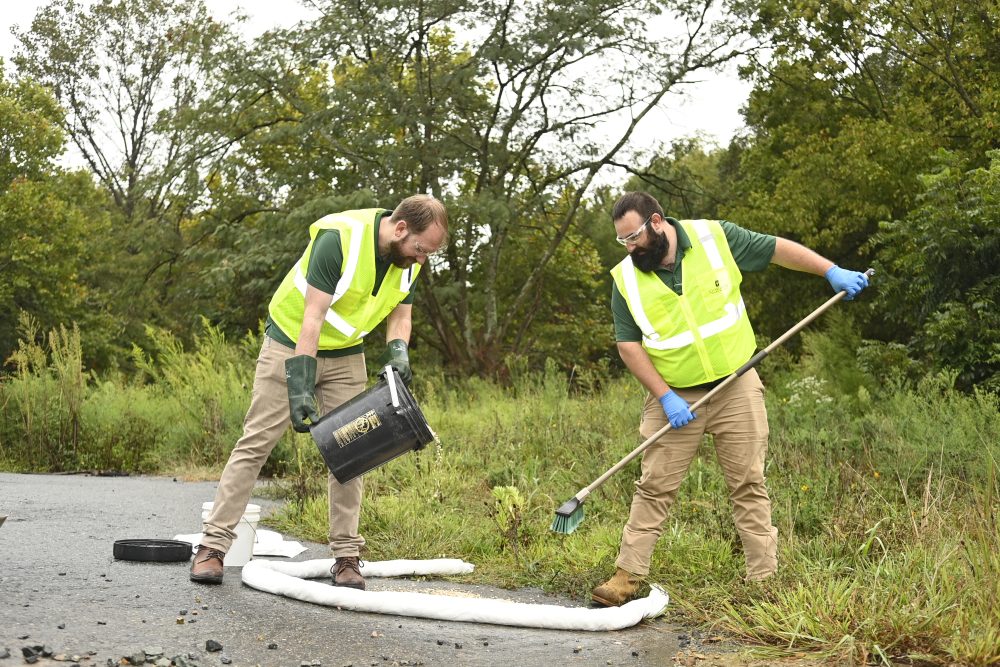Spill Prevention Control and Countermeasures (SPCC)

The Environmental Health and Safety Office supports all other UNC Charlotte departments with SPCC planning, prevention, and response. Oil and petroleum products are regulated by the EPA Clean Water Act and through 40 CFR Part 112. The goal of the SPCC program is to prevent the release of petroleum products and ensure a prompt response to any spills to keep them from reaching local waterways, such as Toby Creek, Hech Lake, and other surface waters on campus. As part of this program, EHS offers consultation, planning, training, and emergency spill response services to ensure our campus waterways stay clean.
What you need to know
- SPCC regulations apply to all oil or petroleum based products. Some commonly used petroleum products on UNC Charlotte’s campus include gasoline, diesel fuel, hydraulic fluid, cooking oil and motor oil. Spills can quickly travel to local water sources through storm drains, manholes, and runoff, therefore rapid response is paramount to protecting campus waterways. Any petroleum discharge or spill that occurs on a roadway, parking lot or other impermeable surface has the potential to quickly reach a waterway and should be reported immediately. If you see something that looks like a spill, please contact the EHS department for investigation.
- Spill Kits are located around campus to assist in containing and cleaning up smaller spills. EHS also maintains a large scale, rapid response spill kit that can be mobilized across campus to assist in major releases
- Most buildings on UNC Charlotte’s campus contain at least one type of petroleum based product, often housed in equipment, labs, or mechanical rooms. In addition, UNC Charlotte’s campus has several mobile petroleum sources, including personal vehicles, industrial vehicles, mobile refuelers, lawn mowers and other gas powered tools.
- Proper PPE, including eye protection, gloves, and boots, are required to be worn for safe spill cleanup.
Services
The Environmental Health and Safety Office offers the following services:
- Above Ground Storage Tank Inspections
- Underground Storage Tank Inspections
- SPCC Planning
- Spill Kit Evaluation and Location Services
- Used Oil Recycling
- Emergency Spill Response